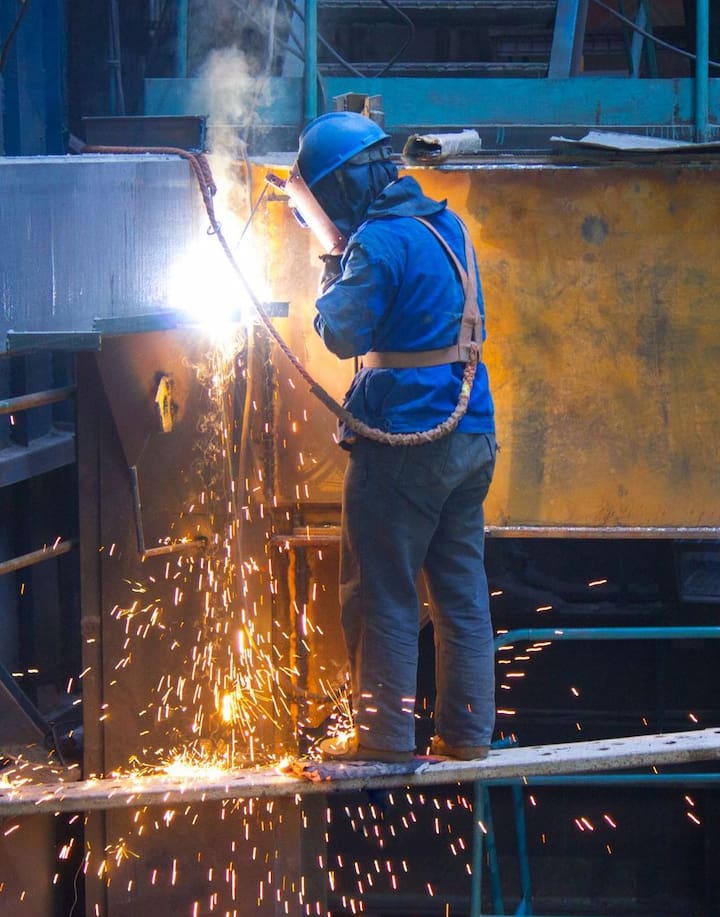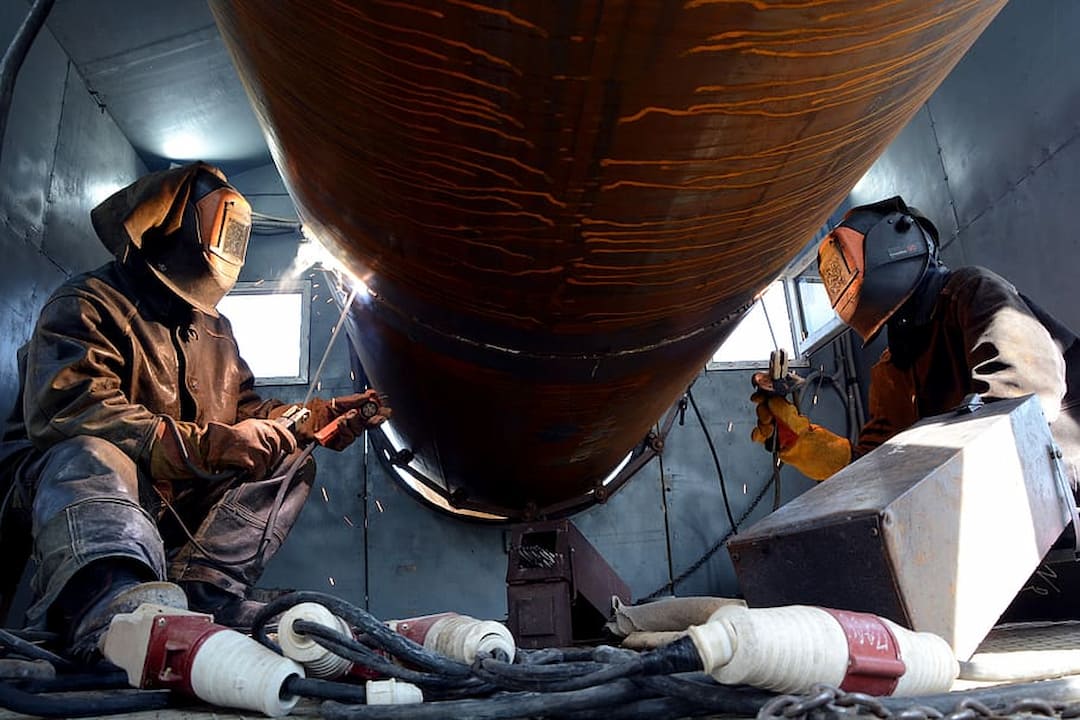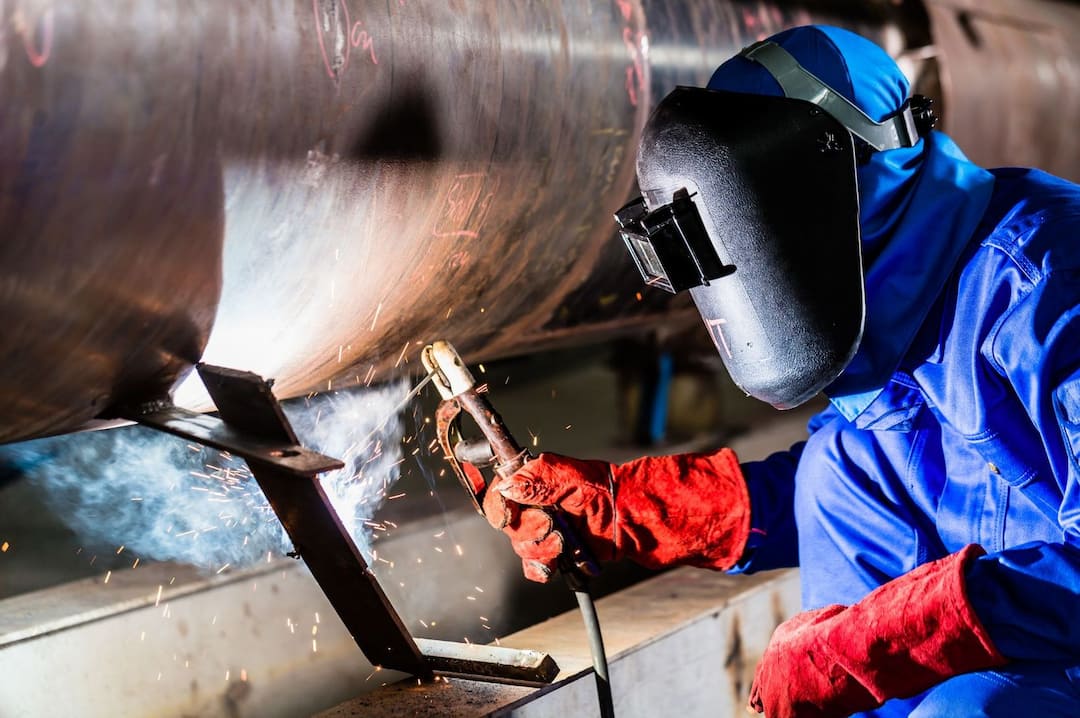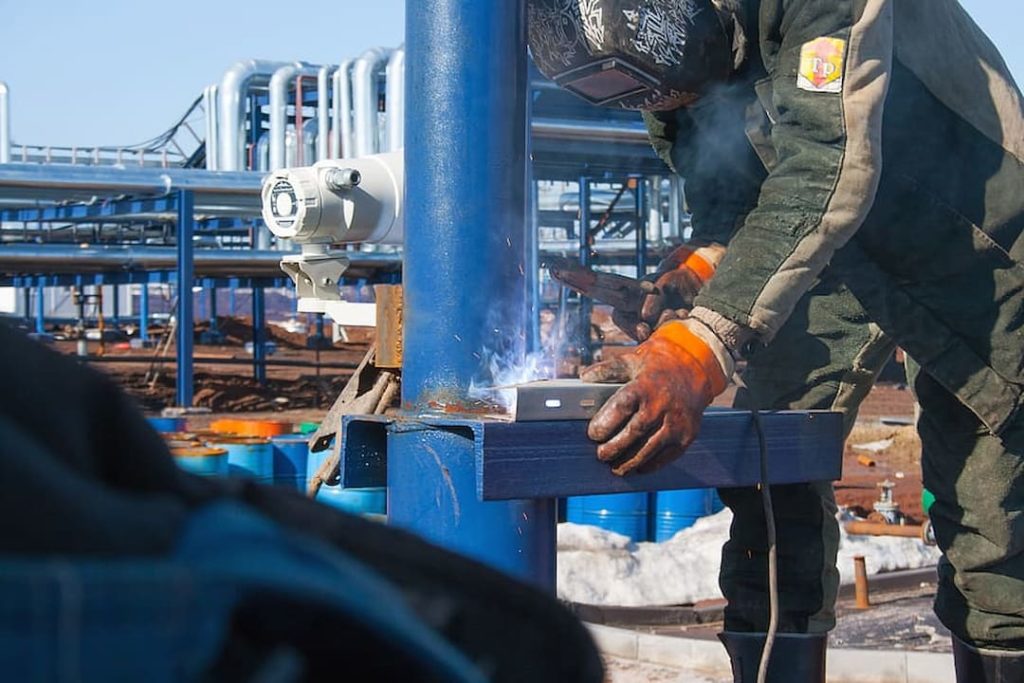If you’re considering a career as a rig welder, the foremost question is likely one of pay: How much do rig welders make? We know it can be hard to make smart decisions about your finances without knowing what kind of wages you could potentially earn.
Table of Contents
That’s why we have all the information you need to make informed and educated decisions on if you want to be a rig welder. In this blog post, we’ll explain how much an experienced rig welder typically makes and provide additional insight into other factors that affect these welders' salaries!
Key Takeaways
- Rig welding is famous for joining oil wells, pipes, or structures and is a high-skill acquired job that comes with a higher salary. As you would have heard of high-paying oil-related jobs, this is one of them.
- If you want to stick to your hometown and look for a welding job, this is not for you; for this job, you will have to go to other areas, such as those of military support welders and industrial pipeline welders.
- The work a rig welder does and the location of their employment can affect their average pay.
- A rig welder's income can vary depending on their level of expertise, location, type of welding job, and certification.
Who is a Rig Welder?
Rig welders are specialized welders who work on offshore oil rigs, pipelines, and other large structures. They must possess high skills and knowledge to properly execute their work.
In addition to welding, rig welders may inspect existing metal structures for corrosion or wear damage and replace damaged parts as needed.
Rig welders typically receive extensive on-the-job training and must adhere to strict safety regulations.
The job requires travel, as rig welders may have to work in multiple locations across the globe.
It can be dangerous, but most rig welders take great pride in their work and enjoy the challenge of working with advanced welding techniques and high-tech machinery, like the high-risk underwater welding .
With the right training and dedication, a rig welder can make a good living in this exciting field.

Average Earnings of a Rig Welder
The average salary of a rig welder can vary depending upon their work and where they work. Rig welders earn between $45,000 to $60,000 per year. Those with more experience and specialized skills, like rope access welders, can get higher salaries. In addition to their high salary, rig welders may receive additional compensation for overtime, travel time, and other expenses.
A rig welder who works on offshore rigs may have the potential to earn higher salaries because of the hazardous conditions they must endure while working. Because of this, they earn more than structural welders or MIG welders
Average Oil Rig Welder Salary
The average oil rig welder salary is around $60,000 per year. This includes base pay, plus any overtime and bonus payments they may receive. Offshore oil rigs can use median pay due to the hazardous working conditions and remote locations. Oil rig welders are highly skilled tradespeople who build and repair offshore oil rigs, pipelines, and other complex infrastructures.
They must possess a strong knowledge of oil rig welding and inspection techniques and adhere to strict safety regulations. Working as an oil rig welder can be risky but rewarding, providing long-term security for those who choose this career path.
What are the Top 10 Highest Paying Cities for RIG Welder Jobs
I have identified ten cities where RIG welder jobs offer salaries higher than the national average. Sunnyvale and CA are at the top of this list, with Manhattan, NY and Livermore coming in second and third, respectively. In Livermore, CA, the salary for a RIG Welder job is 19.4% higher than the average, while Sunnyvale, CA, boasts an impressive 22.6% increase in wages compared to the national average of $83,360.
These ten cities offer excellent opportunities for economic growth for a RIG welder, who is willing to relocate. Surprisingly, there is a very minimal 8% difference in salaries between Sunnyvale, CA, and Worcester, MA, so the salary is one of many factors to consider when looking for new job opportunities in this field.
What Factors Affect Rig Welder Salary?
Rig welders are highly skilled professionals whose salaries reflect that expertise. Several factors can affect a rig welder's salary, including experience level, location, type of welding job, and certification.
Certifications
Rig welders should earn certifications to demonstrate their qualifications and boost their earning potential. The American Welding Society (AWS) offers several welding certifications, including the Certified Welder (CW), Senior Certified Welder (SCW), and Certified Robotic Arc Welding (CRAW).
To qualify for certifications, welders must pass an exam and demonstrate a certain level of proficiency.
Location
Where a rig welder works can also affect their salary. Wages for oil rig welders are typically higher in urban areas, just like an industrial pipeline welder earnings, where competition for skilled workers is greater. The cost of living in these areas is usually higher, so wages may need to be adjusted accordingly.
Experience
The more experience an oil rig welder has, the higher their salary, including specialized underwater welders who earn the most. Those in the field for an extended period are better skilled and more respected, so they often command higher salaries than those with less experience.
Lifestyle
Oil rig welders often have to travel for their jobs which can involve long hours away from home. Rig welders must be comfortable living and working in various environments with minimal amenities. An oil rig welder is also subject to harsh weather conditions so they must be physically fit and able to work in difficult situations.

FAQs Related to Rig Welders Earning
What is the lowest-paying job on an oil rig?
The lowest paying job on an oil rig is typically a Roustabout, earning around $9.50 - $13 per hour. Some other jobs within this category include Roughneck and Motorhand, with pay ranging from $10 to $14 per hour.
How many hours do rig welders work?
A rig welder typically works 8 to 12-hour shifts, depending on the employer and location. Many employers also offer flexible schedules or overtime opportunities. It is important to check with the employer before accepting an oil rig welder position to find out what type of working hours are expected.
What does a rig welder do?
Oil rig welders are responsible for oil rig welding in various industrial settings, including oil rigs. They may be asked to weld pipelines, structural components provided by engineering teams, and custom components needed for special projects. A Rig welder must have an excellent understanding of welding techniques and the ability to use their skills safely.

Final Thoughts
It is clear that working as an oil rig welder offers some great monetary benefits but also comes with challenges. Although the salary for rig welders may vary according to company size, location, years of experience, and job titles, inexperienced rig welders often start at around $50k per year with the potential for raises or bonuses in the future. Certainly a lot more than MIG welders make.
With proper training and dedication as a welder, there's potential for financial success waiting right around the corner.
